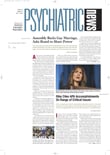The Senate Finance Committee is looking into concerns about the Food and Drug Administration's decision to label a vagus nerve stimulation (VNS) device as “approvable” for treatment of refractory depression.
VNS manufacturer Cyberonics Inc. of Houston confirmed that the company received a letter from the Senate Finance Committee stating that the committee is examining the process behind the decision.
Quoting from the committee's letter, the company said that the committee is“ examining the FDA's handling of Cyberonics'... premarket approval supplement for the VNS therapy to address treatment-resistant depression in adults,” and that the “FDA issued an approvable letter to Cyberonics on February 2, 2005, despite the strong objections from FDA scientists involved in evaluating the safety and efficacy of VNS therapy.”
The company stated that the letter alleges no wrongdoing on Cyberonics' part and requests that Cyberonics provide certain information to the committee.
VNS is approved for the treatment of epilepsy. An “approvable” rating is considered a preliminary step toward market approval.
A spokesperson for the Finance Committee told Psychiatric News at press time that the letter was not available to the public and that the committee was not releasing any information about the investigation.
Committee Chair Sen. Charles Grassley (R-Iowa) has criticized the FDA for its handling of the painkiller Vioxx, now removed from the market, and has continued an inquiry into other risk drugs approved by FDA.
An FDA spokesperson declined to comment on the matter.
Meanwhile, Cyberonics CEO Robert P. Cummins downplayed the inquiry.
“Cyberonics and its advisors believe that [the committee's] examination will produce no new information and that [the committee's] examination will have no bearing on the FDA's final treatment for refractory depression [TRD] approval decision,” said Cummins. “All of the `strong objections referred to in [the committee's] letter were fully considered by a specially chosen FDA advisory panel of depression experts that recommended approval in June 2004 and by the FDA's Center for Devices and Radiological Health during its rigorous review... that resulted in the recent approvable decision.
“There are no FDA-approved treatments for TRD, and none other than VNS has ever been studied or deemed approvable for TRD,” said Cummings.“ According to most patients with TRD, the only real way out of the TRD status quo is suicide. Clearly, the TRD status quo for millions of Americans, their families, psychiatrists, and payers is neither safe nor effective.”
During a symposium on deep brain stimulation sponsored by Cyberonics last month at APA's annual meeting in Atlanta, Lauren B. Marangell, M.D., an associate professor of psychiatry at Baylor College of Medicine, reported data on clinical trials of VNS for refractory depression and said that FDA approval was anticipated.
Marangell has received research support, consulting fees, and speaking fees from Cyberonics, and the data she presented were from studies funded by Cyberonics.
She said that VNS therapy has shown promising acute and long-term results in an open pilot study of 59 adult outpatients with treatment-resistant depression.
Marangell also described a 12-week randomized, double-blind, controlled trial using a “sham control” group in which the VNS device was implanted but was not turned on. In that trial, there was no statistically significant improvement in the treatment group compared with the sham group.
However, data from a naturalistic follow-up of study participants who received 12 months of VNS therapy in addition to antidepressant treatment showed a significant improvement in their average Hamilton Depression Rating Scale score. At 12 months, 52 of 174 patients achieved a reduction on the HAM-D of 50 percent or more. Of those 52 patients, 17 percent achieved“ remission” as measured by a HAM-D score of 10 or less.
The Washington, D.C., advocacy group Public Citizen blasted Cyberonic's data in a lengthy, extensively footnoted letter to the FDA.
“The company has submitted data about only a single randomized, controlled trial... and that trial failed to convincingly demonstrate the effectiveness of the device,” the letter read. “It also produced long-term, nonrandomized data comparing VNS to another comparison group, but an FDA statistician called that analysis `highly questionable.'”
Peter Lurie, M.D., deputy director of Public Citizen's Health Research Group, said that the device should not be approved. “The principle is simple—if it doesn't work, it shouldn't be approved,” he said.“ The FDA would never approve a drug under these conditions [and] certainly shouldn't approve this device.”
A copy of Public Citizen's letter to the FDA is posted online at<www.citizen.org/publications/release.cfm?ID=7385>. The report of the June 2004 meeting of the FDA Neurological Devices Advisory Panel on Cyberonics' VNS system is posted at<www.fda.gov/ohrms/dockets/ac/04/minutes/4047m1.pdf>.▪
